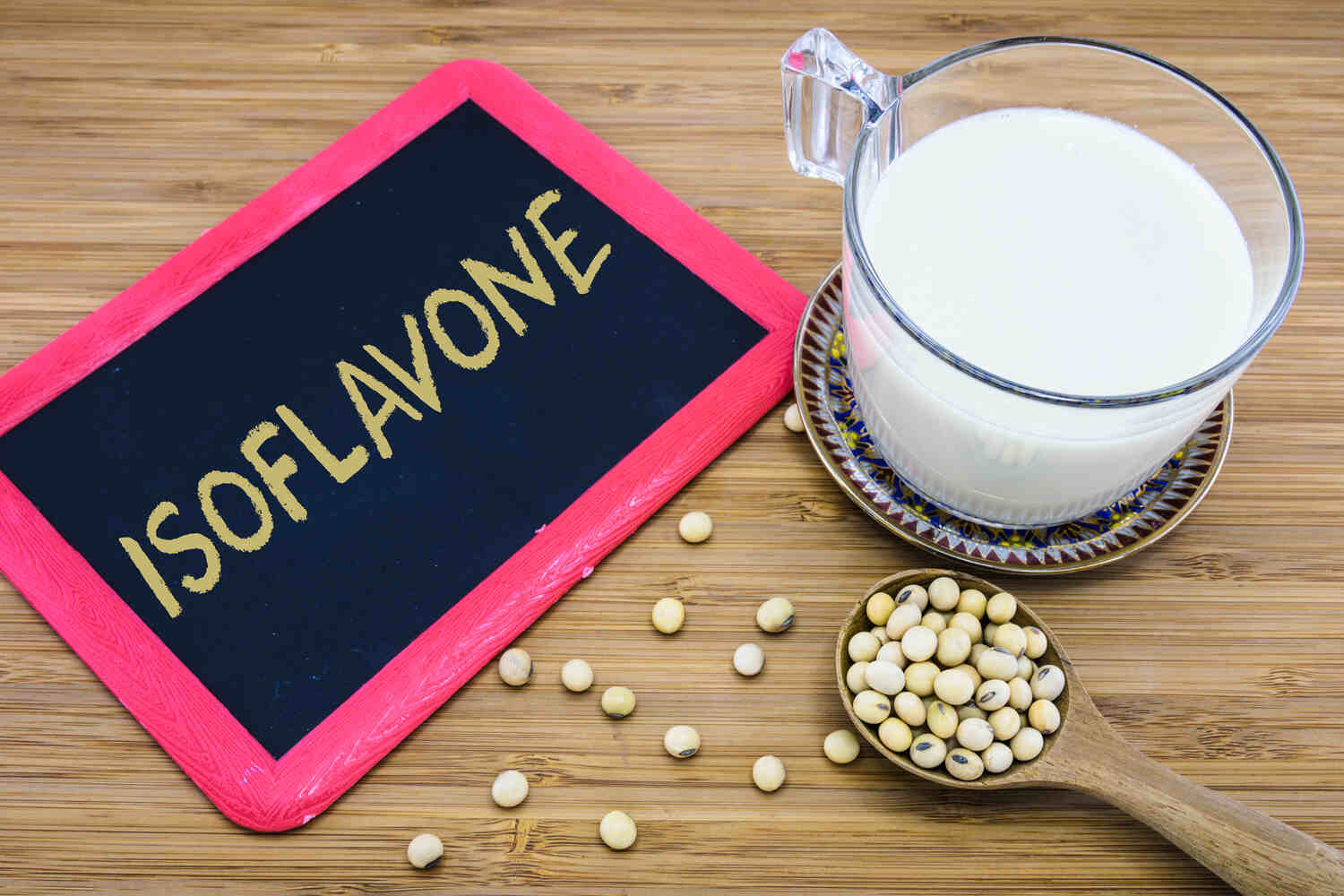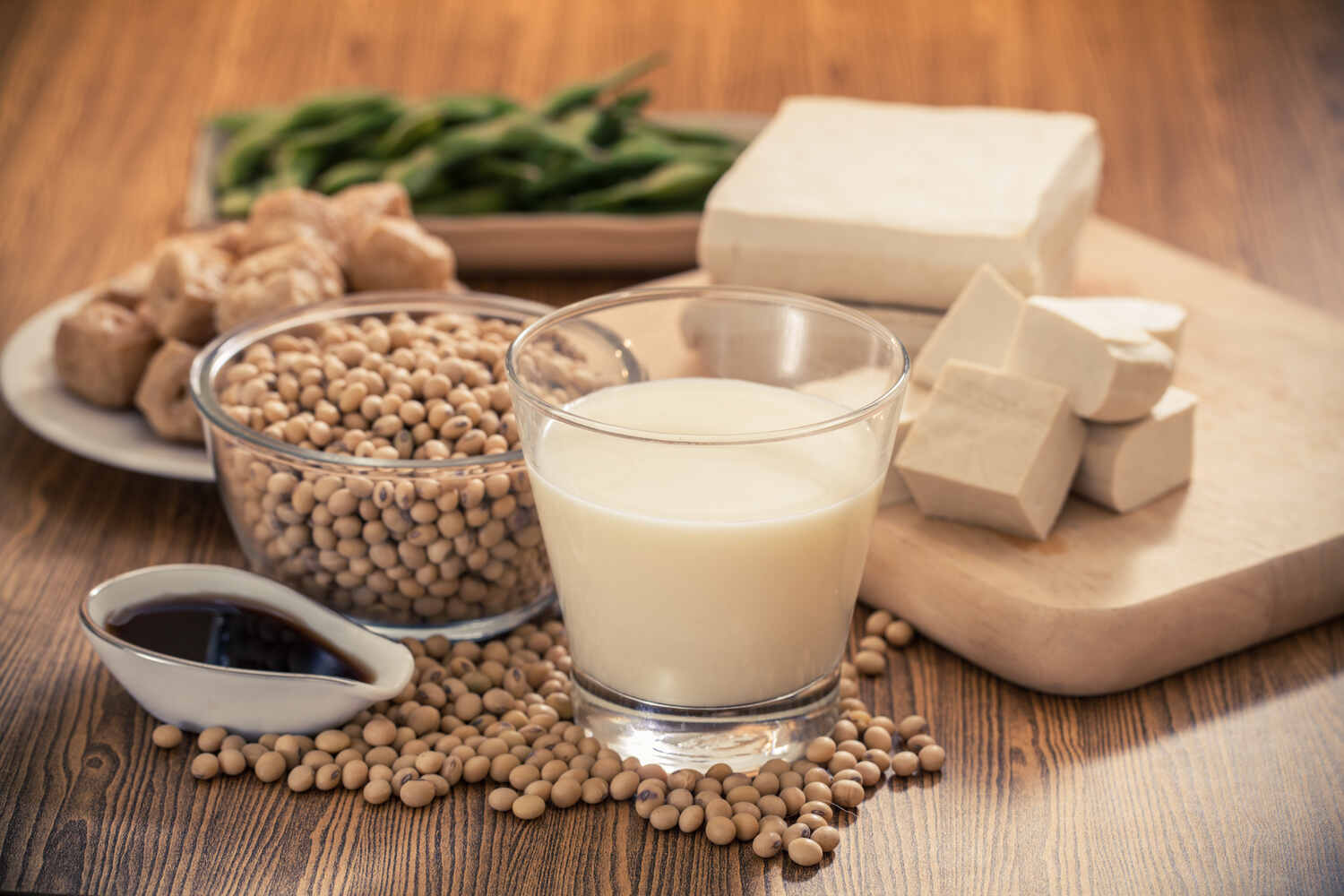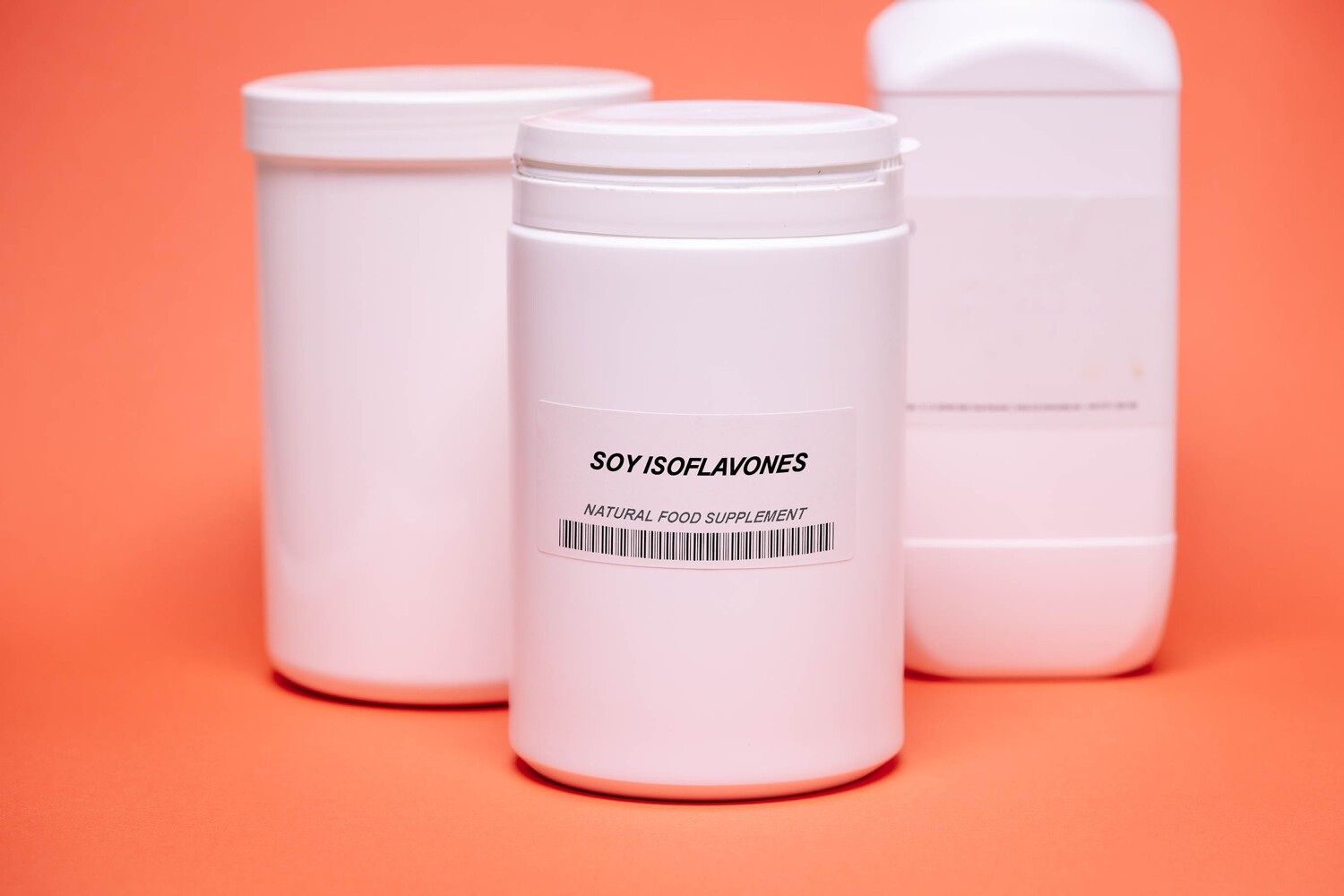
Fertility issues are now a common health problem among young couples. In our daily lives, we come across many people who are suffering from infertility and trying multiple things to change the situation. Some of them are scientifically approved, and a few of them are not. Therefore, taking soy isoflavones is one of them to improve fertility.
The use of soy isoflavones for fertility is practiced to increase the chances of getting pregnant. Many women with fertility issues are advised to take soy isoflavones for conception. However, limited studies about the efficacy of the specific compounds related to fertility have been found. In the near future, more studies will be conducted regarding the impact of soy isoflavones on fertility.
In This Article
- What Are Soy Isoflavones?
- How do Soy Isoflavones Work For Fertility?
- Who Should Take Soy Isoflavones For Fertility?
- How to Consume Soy Isoflavones For Fertility?
- Soy Isoflavones Dosage For Fertility
- Side Effects of Taking Soy Isoflavones
- Can You Take Soy Isoflavone Supplements to Get Pregnant?
- FAQ’s
What Are Soy Isoflavones?
Isoflavones are the chemical compounds found extensively in soybeans. Soy isoflavones are plant-based polyphenols. The compounds act like an estrogen hormone and reduce menopausal symptoms and osteoporosis (1). Foods containing isoflavones are also rich in antioxidants. Hence, it prevents cell damage to some extent. It helps in ovulation and fertility.
Women with irregular menstrual cycles can take soy isoflavones for more estrogen secretion. It can delay the risk of menopause, along with reducing the post-menopausal symptoms in women. So, if you suffer from fertility issues due to low estrogen production in the body, then soy isoflavones can be a good option, but if anything else, then it does not work.
How do Soy Isoflavones Work For Fertility?

Soy isoflavones show similar activity to the estrogen hormone. Hence, it shows estrogenic and antiestrogenic effects depending on the hormonal level of the individual. The specific functions of soy isoflavones are listed below.
1. Ovulation Induction
Generally, the estrogen hormone triggers the ovulation process in females. High estrogen hormone levels ensure egg maturation and release from ovaries. In addition, estrogen hormones prepare the uterus for pregnancy (2). Low estrogen levels can cause infertility and non-ovulatory issues.
If a woman is suffering from a low estrogen level, then she can take soy isoflavones to induce ovulation naturally. It also increases their chance of getting pregnant.
2. Regulation of Menstrual Cycle
In women, estrogen plays a vital role in menstruation. High estrogen levels release egg from the ovary and prepare the uterus for implantation. However, unfertilized egg can cause menstruation, where the uterine lining is shed off.
In this period, estrogen levels are at their lowest to clean up the uterus. Therefore, any imbalance in the estrogen hormone causes irregular menstruation. Soy isoflavones can replace the work of the estrogen and regularise the whole process.
3. Impact on Male Sexual Health
Soy isoflavones help in spermatogenesis (sperm cell development). They maintain the overall sexual health of males, which includes the formation of sex organs, increased sex drive, prevention of erectile, and production of healthy sperm for fertilization.
Hence, soy isoflavones are an essential alternative for male participants having low estrogen levels.
Who Should Take Soy Isoflavones For Fertility?
The impact of isoflavones on fertility is limited. Women with irregular menstruation cycles and ovulation can take soy isoflavones supplements. It can elevate their estrogen level and help in fertility (3).
However, if you are healthy, you should not take excess soy isoflavones. It can cause hormonal imbalance. In addition, individuals with other hormonal disorders like diabetes and thyroid should consult their doctor before taking soy isoflavones.
How to Consume Soy Isoflavones For Fertility?

Soy isoflavones can be consumed in two ways – through foods and as supplements.
1. Through Foods
You can get soy isoflavones through foods such as soybeans, soy yogurt, tofu, soy powder, and soy milk, which are high in isoflavones. In addition, lentils, lima beans, peas, and speckled beans have generous amounts of soy isoflavones.
In contrast, chickpeas, peanuts, and pistachios have less amounts of isoflavones. You can incorporate this food into your daily diet to meet the demands of soy isoflavones.
2. Through Medicines
Isoflavones are marketed commercially. Thus, you can take it as a tablet from the pharmacy. However, you must consult your doctor before taking it commercially, as it has many side effects.
Soy Isoflavones Dosage For Fertility
The advisable dose for fertility-related issues is 80 to 200 mg/day as per the patient’s estrogen level. Women can start taking the supplements from day 3 to day 7 or from day 5 to day 9 during their menstrual cycle.
Additionally, continue the same dose for 5-day cycles. Individuals with low estrogen hormone levels can increase the amount of soybeans and soy products in their regular diet. It can help them to obtain extra isoflavones naturally.
In some cases, supplement capsules are advised to be taken for better results. However, consult with your doctor before taking the supplements. In addition, prolonged administration of the supplement can have a negative health impact (4).
Side Effects of Taking Soy Isoflavones

Consumption of soy isoflavones for fertility is not clinically proven. However, high doses for a long time can cause multiple side effects listed below.
1. Negative Impact on Male Reproductive System
A few animal studies signify that consumption of isoflavones can harm the male reproductive system. Overconsumption can cause erectile dysfunction, poor sperm quality, and infertility (5). Further studies on humans are needed to understand the consequences better. A healthy individual without any complications should not take excess isoflavones.
2. Interfere With Thyroid Synthesis
Animal studies have been isolated that isoflavones inhibit thyroid hormone production (6). It suppresses the activity of thyroid peroxidase and hence interferes with thyroid production.
In contrast, consuming excess soy isoflavones increases the chances of hypothyroidism if dietary iodine consumption is good enough.
3. Negative Impact on Women
If you consume an isoflavones supplement for more than five days in a month, it can affect your ovulatory cycle. Furthermore, excess amounts of isoflavones can cause heavy bleeding during menstrual cycle.
Can You Take Soy Isoflavone Supplements to Get Pregnant?

You can take soy isoflavones for pregnancy if you have irregular menstruation or low estrogen levels. However, it is still a questionable thing to take soy isoflavones for fertility.
At the initial stage of infertility, one can take the supplement under the doctor’s supervision. It regularises their menstrual cycle and ovulation process.
Prolonged administration would not work for better results. If you are a healthy woman with regular menstrual cycles, you do not need to take soy isoflavone supplements to get pregnant. It causes hormonal imbalance and infertility.
Isoflavones have multiple health benefits. It promotes cardiovascular health, prevents cancer, improves bone health, and reduces post-menopausal symptoms (7). However, soy isoflavones for fertility is a controversial topic.
It needs future research for concrete ideas. Multiple studies recognized that estrogen-related infertility issues can be treated with soy isoflavones to some extent. Even healthy individuals should consult with doctors before taking the supplement.
If you are considering soy isoflavones for fertility purposes, ensure that you are taking the correct amount for a 5-day course and that you do not have any pre-existing diseases.
FAQ’s
1. Do Soy Isoflavones Work For Fertility?
Many factors play an important role in resulting infertility. Low estrogen levels in males and females are one of them. Soy isoflavones are suitable for people with low estrogen hormone levels. Though they can increase estrogen production which may help in fertility, no substantial evidence suggests soy isoflavones actually improve fertility. But they can help maintain a healthy reproductive system, which is agreed upon.
2. Which Food Has Most Soy Isoflavones?
Soybeans have a generous amount of isoflavones. Each gram of soy protein contains approximately 3.5 milligrams of isoflavones. Soy products like tofu, soy milk, and soy yogurt have plenty of isoflavones. Furthermore, 100 gm of tofu or soy milk provides approximately 25 mg of isoflavones.
References
- Soy isoflavone: The multipurpose phytochemical (Review)- [https://www.ncbi.nlm.nih.gov/pmc/articles/PMC3916987/]
- The role of soy and soy isoflavones on women’s fertility and related outcomes: an update- [https://www.ncbi.nlm.nih.gov/pmc/articles/PMC8922143/]
- Soy isoflavone intake and the likelihood of ever becoming a mother: the Adventist Health Study-2- [https://www.ncbi.nlm.nih.gov/pmc/articles/PMC3982974/]
- Isoflavones – [https://www.ncbi.nlm.nih.gov/pmc/articles/PMC6470817/]
- Cuscuta chinensis flavonoids reducing oxidative stress of the improve sperm damage in bisphenol A exposed mice offspring-
[https://www.sciencedirect.com/science/article/pii/S0147651323003354#ab0020] - Flavonoids, Thyroid Iodide Uptake and Thyroid Cancer—A Review-
[https://www.ncbi.nlm.nih.gov/pmc/articles/PMC5486070/] - Benefits of soy isoflavone therapeutic regimen on menopausal symptoms- [https://www.sciencedirect.com/science/article/abs/pii/S0029784401017446]

